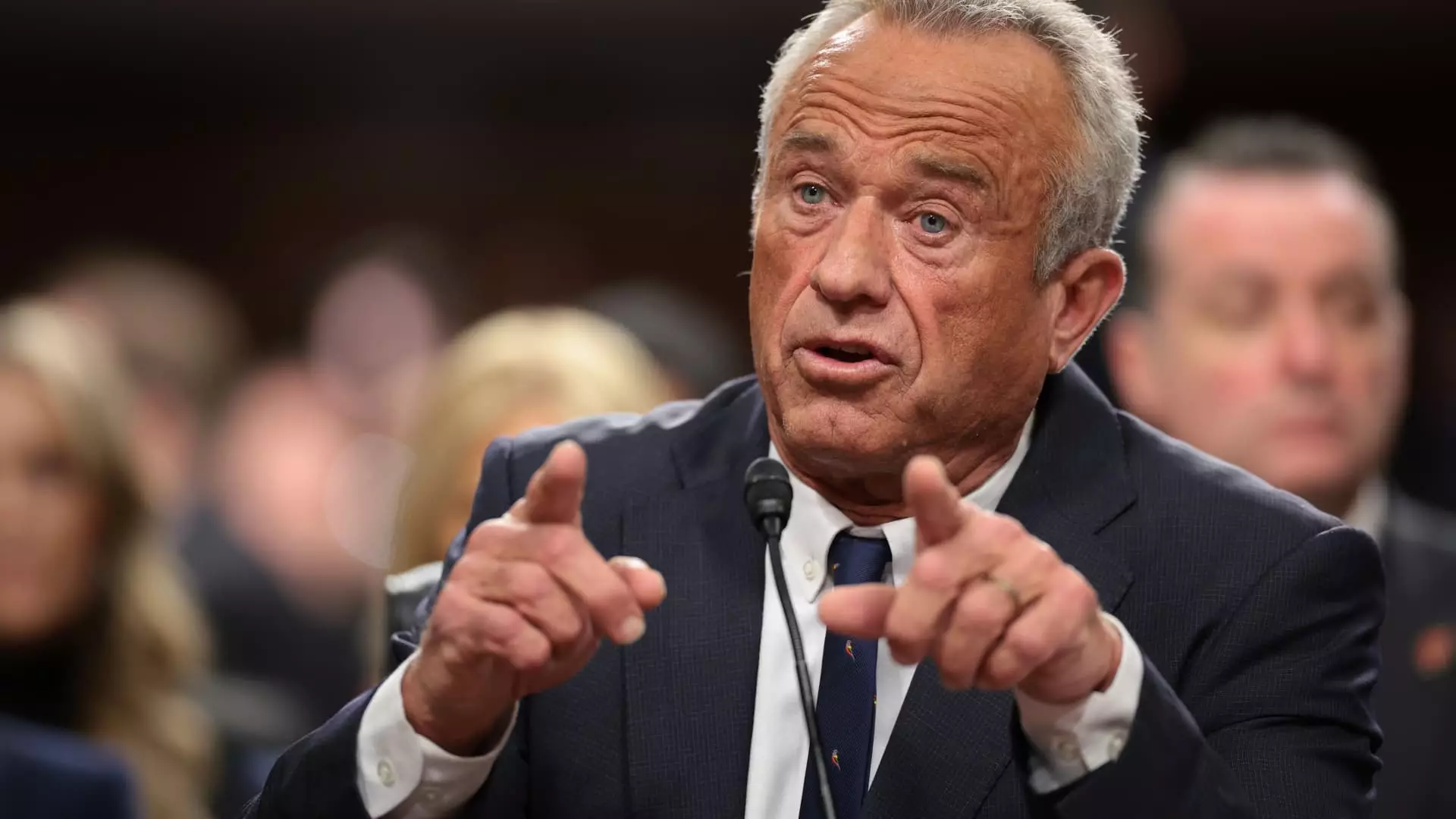In a climate where public trust in nutritional integrity dwindles, Robert F. Kennedy Jr.’s recent statements regarding food safety and health reveal both hope and apprehension. As the Health and Human Services Secretary, Kennedy’s commitment to eradicating “the worst ingredients” from our food systems is a welcome change, yet the implications of such a mission may linger under a cloud of skepticism. With artificial dyes at the forefront of this initiative, the spotlight has turned towards an ongoing debate: is the urgency to reform our food industry a matter of public health, or is it a politically charged agenda masking economic motives?
Kennedy’s pronouncement to top food executives signals a critical moment for the food industry, one where corporate influence meets regulatory stipulations. He asserted his willingness to take decisive action against food manufacturers that fail to cooperate. His platform promises to expunge harmful substances, essentially heralding a cleaner and healthier food landscape. The potential impact of his leadership is undeniable, yet it raises questions about the method and motivation behind such reform.
Constructive Engagement or Coercive Pressure?
During the strategic dialogue with industry leaders—including those from PepsiCo, Kraft Heinz, and General Mills—Kennedy expressed a desire to collaborate, yet his insistence on repercussions for noncompliance casts a shadow on the collaborative spirit he claims to endorse. This duality could represent a groundbreaking shift in consumer protection, provided it translates into meaningful changes. Still, it risks alienating an industry that has already faced substantial pressures from public demand for healthier offerings.
Consumer Brands Association CEO Melissa Hockstad’s optimistic views portray a harmonious approach towards public health enhancement. However, one cannot ignore the elephant in the room: the inherent conflict of interest between producers and regulators. The challenge lies in balancing corporate profitability with the need to prioritize consumer health. The potential for backlash from an industry accustomed to growing profits—often at the expense of nutritional quality—awakens the question: how far will Kennedy go to enforce these changes?
The Complex Legacy of Industry Regulations
Kennedy’s platform, articulated as “Make America Healthy Again,” reverberates through an agency that oversees significant aspects of national health, including food production and immunization. The juxtaposition between his anti-corporate narrative and the reality of working within an existing framework of regulations presents an intricate challenge. The food industry has long benefited from a loose regulatory grip that permits certain unhealthy additives—often under the guise of consumer choice and market demand.
The recent revocation of Red No. 3 by the FDA is a prime example of the gradual approach needed to dismantle the systemic reliance on harmful ingredients. Here lies the intersection of science, policy, and ethics: can Kennedy effectively alter the course of an agency that has often swayed to the demands of powerful food conglomerates? The transition from rhetoric to impactful regulation is fraught with political repercussions and potential pushback from both industry stakeholders and consumers.
Paving the Way for Healthier Choices
Kennedy’s vision extends beyond the immediate removal of undesirable ingredients. He champions a radical restructuring of how we define public health. His emphasis on nutritious food over pharmaceuticals as a solution to chronic issues among children and adults represents a paradigmatic shift toward dietary accountability. Such a regime could usher in an era where consumer health is at the forefront of legislative priorities, a laudable ambition that many advocates have long sought.
Yet, the specter of Kennedy’s reputation as a vaccine skeptic looms large. His forthcoming reviews of the childhood vaccination schedule paired with the potential overhaul of advisory committees raise alarms about the integrity of public health initiatives. While the condemnation of detrimental foods could be seen as progressive, the hesitance surrounding vaccination could portray a contradictory narrative that undermines comprehensive health strategies.
The Path Ahead: Polarization or Collaboration?
As Kennedy attempts to navigate this treacherous terrain, his approach will inevitably influence public sentiment and industry response. The delicate dance between regulation and cooperation could manifest in numerous ways—some of which may receive backlash from both progressives eager for rapid change and conservatives wary of government overreach.
Whether this initiative will culminate in substantive change remains uncertain. The interconnection of consumer trust, corporate accountability, and public health advocacy creates a complex web that Kennedy must traverse. His commitment to removing harmful substances from our food chain is a commendable first step; however, the sustainability of such reforms hinges on transparent and effective partnerships rather than unilateral decisions. The road to a healthier America might be paved with good intentions, but its progress will depend on navigating the choppy waters of public response and corporate cooperation.

